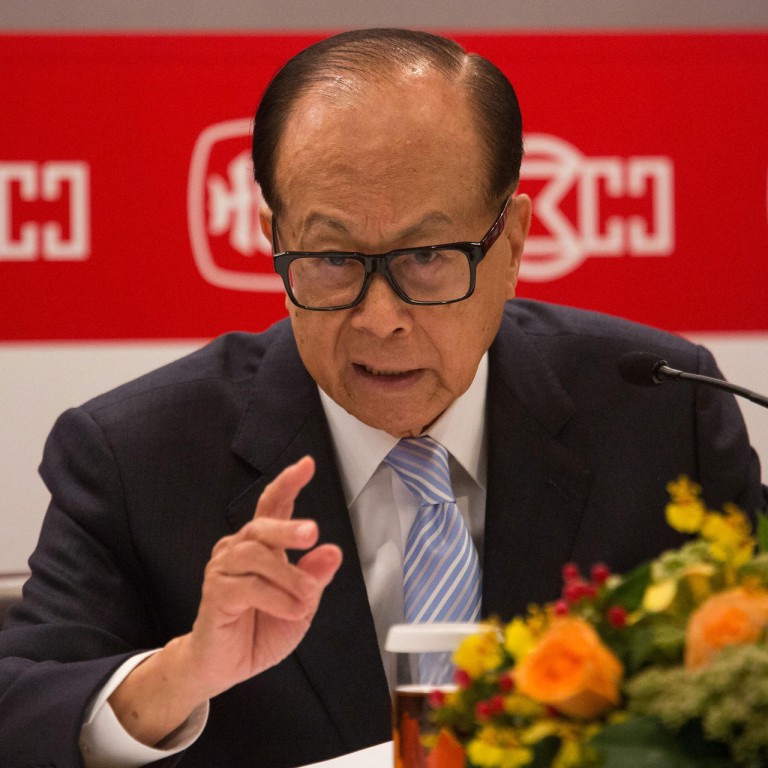
Did Temasek overpay for its stake in AS Watson?
Return of two times over 3 to 5 years will justify the high valuation of the HK$44b investment
Li Ka-shing's latest move to quickly close a HK$44 billion private deal with Singapore's Temasek for 25 per cent of AS Watson may be convenient for him, but the future could reveal that the sovereign wealth fund overpaid for Asia's richest man's own perceived brand and prowess.
The deal solves one problem for Li - it allows him to pull out some capital from Watson and redeploy it for better returns.
But, as it is not a sale of the entire firm, an initial public offering has only been delayed for probably three years. So for the next three years or more, the investment needs to demonstrate high performance to justify the risk and high valuation.
The original Watson-ParknShop-Fortress deal was rejected by major American and European private equity firms because the valuation was too high. And many of them also insisted on buying control.
Tom.com and CK Life Sciences are two other examples of where Li's magic does not work
Li was unlikely to sell at anything less than his preferred price. Although Watson's complete financials are unavailable, it is unlikely he offered Temasek anything resembling a bargain. This is evident in the cancelled listing. Clearly, Temasek paid so much that a flotation could not be priced high enough to produce an attractive return.
Using private equity metrics, its investment needs to return at least 1.5 times and ideally two times over three to five years to yield a respectable exit.
Announced deal terms were based on Watson's annual profit before tax for last year of about HK$10 billion.
Parent Hutchison Whampoa trades at about 14 times last year's earnings, while the Watson stake was sold at 22.6 times earnings. A similar business is New York-listed Rite Aid, which trades at 22.46 times last year's earnings and has a market capitalisation of US$6.42 billion.
Rite Aid is primarily a retail-based drugstore chain with 4,623 stores in 31 states in America. Prescription drug sales account for 67.6 per cent of the total, which is a different mix from Watson's, and the company is a smaller business, with revenue of US$25.39 billion and net income of US$118.11 million last year.

Watson is the largest health and beauty product retailer in Europe and dominates 20 per cent of the Chinese market, operating 10,500 stores in 25 markets.
Hence, Temasek paid the same valuation for a minority stake in a bigger but non-listed company in a similar business in exchange for higher growth prospects.
The large-cap deal sector of Asian private equity has finally matured to a point where professionally run investment companies like Temasek can buy and sell assets directly in transactions with Asia's wealthiest families. This effectively disintermediates the stock markets as the primary means of capital-raising and investment exit. Value has been crowded out for investors who can use only the stock market.
The listing of Facebook came only after its shares were widely traded in a grey market by private funds and investors (which included Li's Horizon Ventures) for years before the deal.
This private trading represented the real flotation because so much value had been ratcheted up in those transactions that Facebook's stock-exchange listing notoriously burned investors.
Luckily, investors who did not sell at the listing were rewarded with a strong price recovery. But subscribers to Watson's eventual listing may not be so lucky.
While most of the press has focused on Li and his deputy, Canning Fok Kin-ning, Temasek needs to determine if Watson's managers in its 25 markets are capable of meeting a business plan that drives its target returns.
Almost all the returns (or losses) for private equity investors are created at the entry price. So although Temasek appears to be buying into a cyclical consumer European recovery and Chinese consumer growth, all that will never be realised if it has overpaid or Watson's management cannot execute its plan.
Cheung Kong and Hutchison do not believe in using stock options to incentivise employees. This may be adequate for its Hong Kong businesses, but it is not a formula for success elsewhere.

